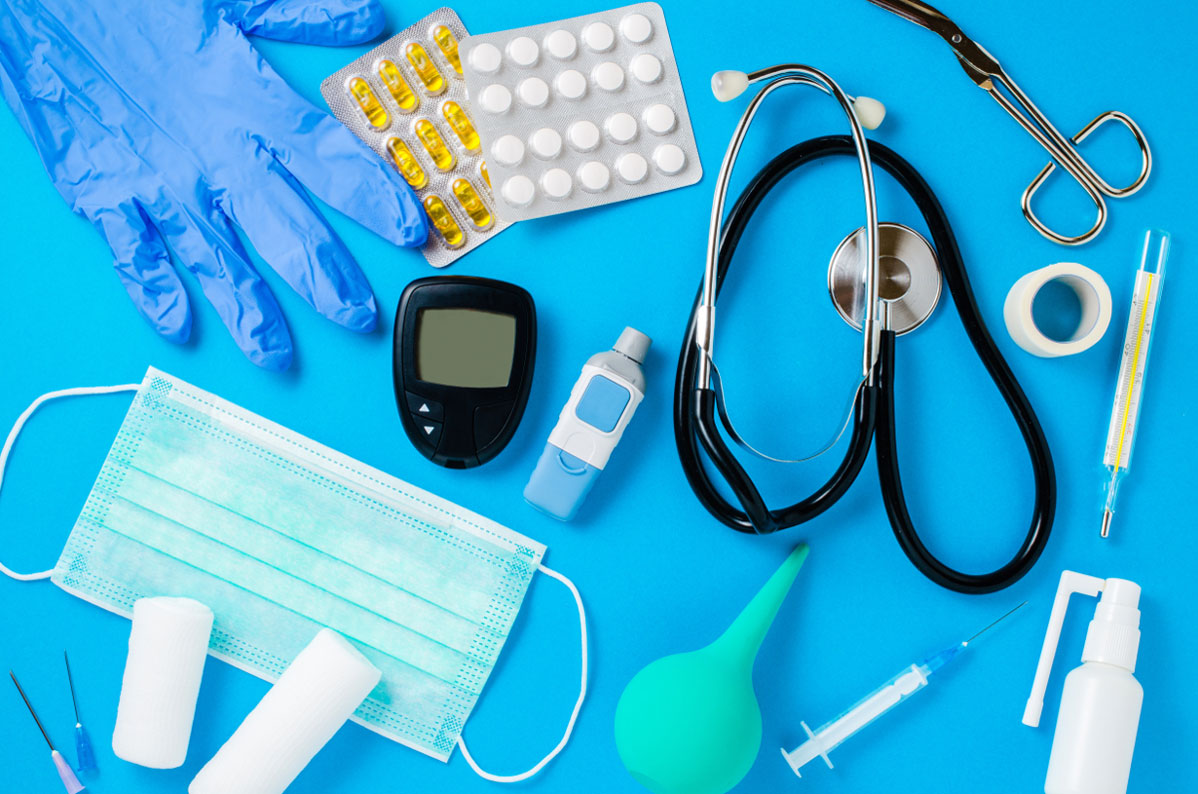As a medical professional, you want to do your best to keep everyone in good health — even if you are not treating a patient with coronavirus. In times like these, however, this may be easier said than done. The recent pandemic-designation of COVID-19 puts medical professionals in a particularly unique position. You may be asking yourself what to do if you run out of supplies, no matter what kind of medicine you practice.
Protective Gear
As coronavirus continues to spread, it is crucial for medical professionals to keep themselves safe. After all, patients can only be treated if there is someone available to provide professional treatment. This is true regardless of practice type and whether or not the patient is known to have coronavirus. Currently, the Centers for Disease Control and Prevention (CDC) recommends that healthcare workers wear:
- Goggles or face shield (for eye protection)
- Respirator or medical mask (ideally, an N95 respirator)
- Gown (closed securely at the back)
- Gloves (pulled up over gown sleeves)
Alternatively, workers may wear powered air-purifying respirators (PAPRs) that cover the entire head. There is still much we do not yet know about COVID-19. As such, authorities recommend taking higher-level protections until more information on the virus’s transmissibility is known.
N95 Respirator Shortage
Hospitals and other healthcare professionals generally only order as many supplies as they anticipate they will need. This, in conjunction with a slew of other factors amid the coronavirus outbreak, has led to a nationwide shortage of N95 respirators.
Healthcare professionals should also advise their patients not to wear respirators or surgical masks unless they are already sick with coronavirus, as this may further contribute to the shortage. For most healthy people, wearing respirators and surgical masks will not do much to prevent contracting COVID-19.
Rationing N95 Respirators
As the shortage continues to worsen, the CDC has approved using N95 respirators for “repeated close contact encounters with several patients,” despite being marked as single-use. They may also be used beyond their manufacturer-designated shelf life.
In the meantime, alternative options are available. The World Health Organization (WHO) recommends using surgical masks to protect against droplets when N95 respirators are unavailable. Such protection is inadequate, however, when performing aerosol-generating procedures.
Other Supply Shortages
In an interview with National Geographic, senior scientist at the Johns Hopkins Center for Health Center Eric Toner states, “In terms of the amount masks, gowns, gloves, [and] respirators that would be needed.” Toner adds, “I don’t see any reason to think that we would need a different number of those things than we do for a severe pandemic flu.”
The CDC’s models for a potential public health emergency estimate that American healthcare workers will need 7,000 to 11,000 mechanical ventilators and 100 to 400 million surgical masks for the least to most severe scenarios, respectively. However, anticipating actual supply and demand is difficult when the outbreak’s attack rate is still undetermined.
What Healthcare Professionals Can Do
In anticipation of a possible lockdown, healthcare professionals should make sure to supply their patients with a sufficient amount of prescription refills as necessary. It is crucial to take proper precautions and not skip any necessary preventative measures out of fear of running out. Order any masks, gowns, gloves, and respirators while possible, along with any other supplies you anticipate needing. Ration out any supplies carefully and reuse what can be safely reused. If your N95 supplies are running low or you have run out entirely, follow the CDC protocol.
Additionally, the U.S. government has incentivized manufacturers to increase the production of surgical masks and respirators by promising to buy any that are left over once demand has run dry. The Strategic National Stockpile, which has a record of proven success during previous epidemics, has also asked manufacturers to submit data on their inventories of personal protective equipment. If necessary, the stockpile may be able to supply healthcare workers with any antibiotics (both oral and antibiotic) and any other medical equipment that could prove useful.
We know that these are stressful times. You want to keep your practice afloat, treat your patients successfully, and protect yourself from the virus all at once. Staying informed and taking steps to prepare may be able to help lessen your anxieties.
Doctor Genius, located at 2 S Pointe Dr #200, Lake Forest, CA 92630, provides a range of services for practice success. We seek to meet our clients’ needs by providing a variety of marketing, SEO, practice optimization tools, and coaching to transform the healthcare experience. Though we work to provide the most accurate information, the content found on this website is solely intended for entertainment purposes. Therefore, we cannot guarantee that the information provided is entirely correct. You may not use the information on this site to cure, prevent, or diagnose a perceived medical issue. If you have healthcare-related needs, please speak directly to a healthcare professional. Never self-perform medical treatments discussed on this website. All images displayed are also for entertainment purposes only, and personal experiences may differ. Please note that the business tactics mentioned on this site might not be applicable to your industry or practice.


